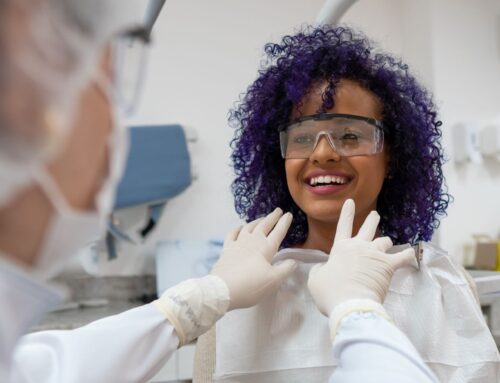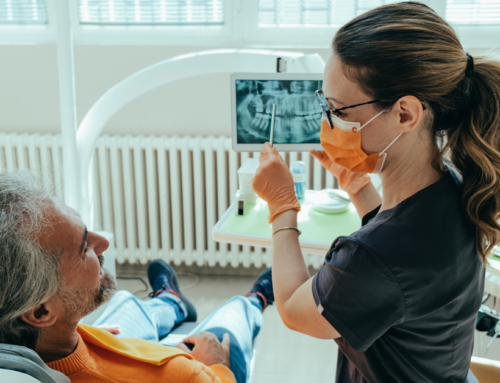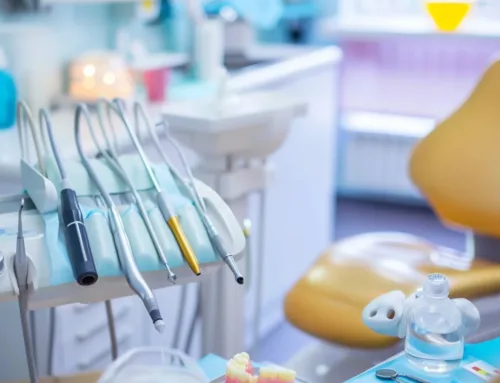Protect Yourself From the Risks of Vitamin D Deficiency
Maintaining a good state of overall health includes making sure we receive the essential nutrients that our bodies need to keep functioning & working properly. In most cases this is done by following a good diet, but when it comes to vitamin D, a different approach is required to get enough of it.
We all want to stay as healthy as we can, and we all know the basics that help us achieve this. Good nutrition, quality sleep, and regular exercise are important for a strong state of well-being, along with regular health and dental checkups. Within each of these, however, some elements are easier to manage than others. For example, many Canadians find that the shorter daylight hours in the wintertime can make it more difficult to obtain the proper amount of vitamin D needed to stay optimally healthy.
But wait, why is sunlight needed to get vitamin D when all our other vitamins, minerals, and nutrients come from the foods and drinks that make up our diets? This is an excellent question, and the answer is because vitamin D is not naturally found in high enough concentrations in many of the most common foods and drinks that we consume.
How Do We Typically Get Vitamin D?
So, if we don’t get most of our vitamin D naturally from food, how do we get enough? Simple; our bodies produce it for us. We all have a natural biological process that activates when our skin is exposed to the UV rays that are part of sunlight. This process uses the radiation within sunlight to synthesize vitamin D, which is then distributed throughout our bodies.
Of course, we don’t need hours upon hours of sun exposure every day to achieve the necessary vitamin D production. On average, about 20 minutes of contact with unfiltered sunlight each day will be more than sufficient for most people. However, some people may have less efficient vitamin D production in their bodies, or perhaps are prevented from obtaining this amount of sun contact for any number of reasons.
While there are some foods that contain naturally occurring vitamin D, such as fish like tuna and salmon, the concentrations are usually very low. This is why many foods like milk, juice, and yogurt are often fortified with additional vitamins including vitamin D to aid in maintaining the proper intake levels. In addition, multi-vitamins and supplements are common methods of boosting our overall nutrition and preventing deficiencies.
What Is Vitamin D, and How Do Our Bodies Use It?
Vitamin D is needed for keeping our bodies healthy in a number of ways. Most importantly, it’s an essential part of a strong and resilient skeletal system. Vitamin D aids in the absorption of minerals like calcium that are the basic building blocks of our bones and teeth. Thanks to vitamin D, our bodies are able to raise our bone density and improve their strength through increased efficiency of calcium and phosphorus absorption.
In addition to being a critical factor in bone health, vitamin D is also needed to regulate the amount of calcium in the bloodstream by influencing the function of the parathyroid glands. These glands act according to the concentration of calcium and vitamin D in the body. When levels are optimum, bone density is maintained and bodily functions work efficiently. When calcium or vitamin D levels are lower in the bloodstream, the parathyroid glands spring into action to extract calcium from the bones in order to distribute it to the other essential parts of the body that require it.
As you can see, vitamin D is certainly a nutrient that plays a vital role in our health, and so we will definitely want to make sure we are getting enough of it to avoid any of the potential negative health effects associated with a vitamin D deficiency.
Risks of Vitamin D Deficiency
What would happen if your body doesn’t get enough vitamin D? The effects could manifest themselves in several different ways, most of which are not always very obvious at the onset. People experiencing a deficiency of vitamin D typically relay a feeling of general fatigue that won’t entirely subside even after resting. This can in turn have a negative impact on our mood and overall sense of well-being.
Other individual symptoms of vitamin D deficiency are harder to identify, but can be diagnosed in combination. Things like aches and pains in the joints are common identifiers, as are recurring or frequent muscle cramps. Long-term effects of vitamin D deficiency include loss of bone density, increasing the person’s susceptibility to fractures resulting from falls, impacts, and other injuries.
Along with a loss of bone density, vitamin D deficiency can result in dental health problems in the form of deterioration of the gums and increased likelihood of developing tooth decay. Vitamin D deficiency can also be a contributing factor to the development of conditions such as heart disease, certain types of cancers, and chronic health problems such as diabetes and high blood pressure.
How Can We Ensure We Get Enough Vitamin D Each Day?
Although the risks and effects of vitamin D deficiency are serious, avoiding it is fairly straightforward, and can be achieved by a few simple lifestyle changes. For starters, making more of an effort to get out during the daylight hours, especially during the winter, will make a world of difference in your vitamin D levels. Even a short walk outside during your lunch break or a quick run out to the corner coffee shop can be enough to get you 20-30 minutes of sunlight.
Another good way to boost your intake is to work in some of the foods that do contain incremental levels of vitamin D, such as salmon, fish, eggs, and fortified yogurts and dairy products, just to name a few. Simply swapping out your existing brand of these products for a more nutritious version can help improve your overall state of health.
Lastly, to help cover all your bases when it comes to vitamin and mineral intake, a daily multivitamin is always a good idea. While it should not be considered a replacement to a healthy balanced diet, it will help provide extra assurance that your body is getting all the vitamins and minerals it needs each and every day.
Take Advantage of a Holistic Approach to Dental Care
Taking better care of your health should always be an ongoing goal, as even the simplest positive lifestyle changes can have a far-reaching impact on your overall quality of life. Looking at your entire state of health, considering how each system in your body is interconnected, and how each affects the others can give you a more comprehensive view of what changes will really make the biggest difference for you.
At Georgian Dental, we offer a holistic approach to your dental care, and take into consideration all the different factors that can have positive or negative effects on your teeth, gums, and mouth, as well as how your state of dental health can affect other aspects of your well-being and longevity. The ultimate aim of this approach is to bring about the synergies that can come from elevating different parts of your health so that they may gain even greater benefits from one another. From nutrition advice to advanced dental procedures and everything in between, we’re here to help.
Contact us today to book your next appointment and get started taking advantage of the benefits of holistic dental care.
Appointment Request
If you’re interested in any of our procedures, and would like to meet with one of our dentists to discuss options, costs and get additional information, complete this short form and we’ll give you a call to arrange for a no-obligation appointment at our Barrie clinic.










